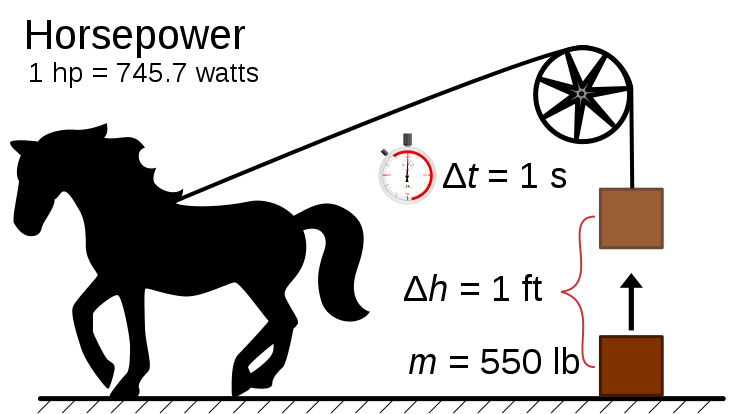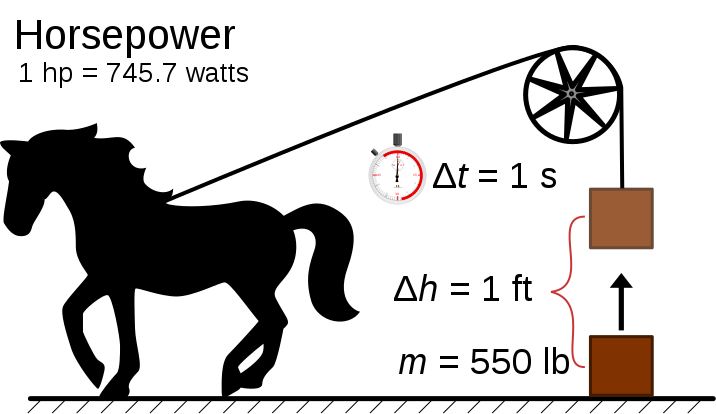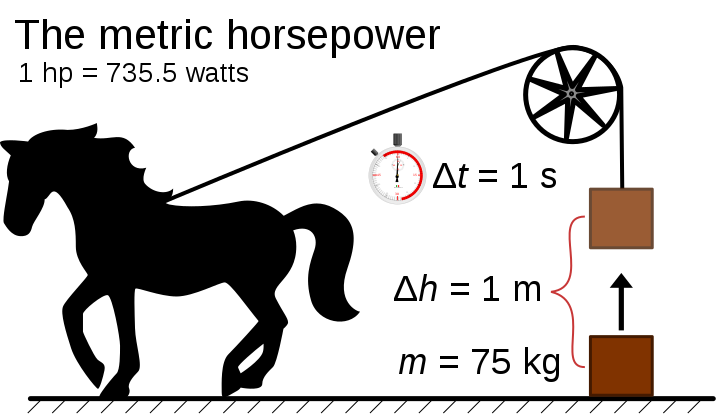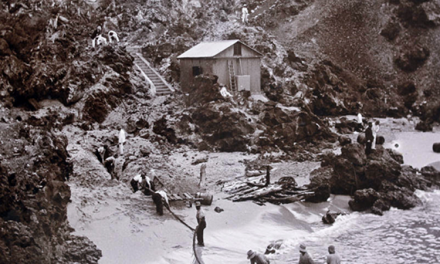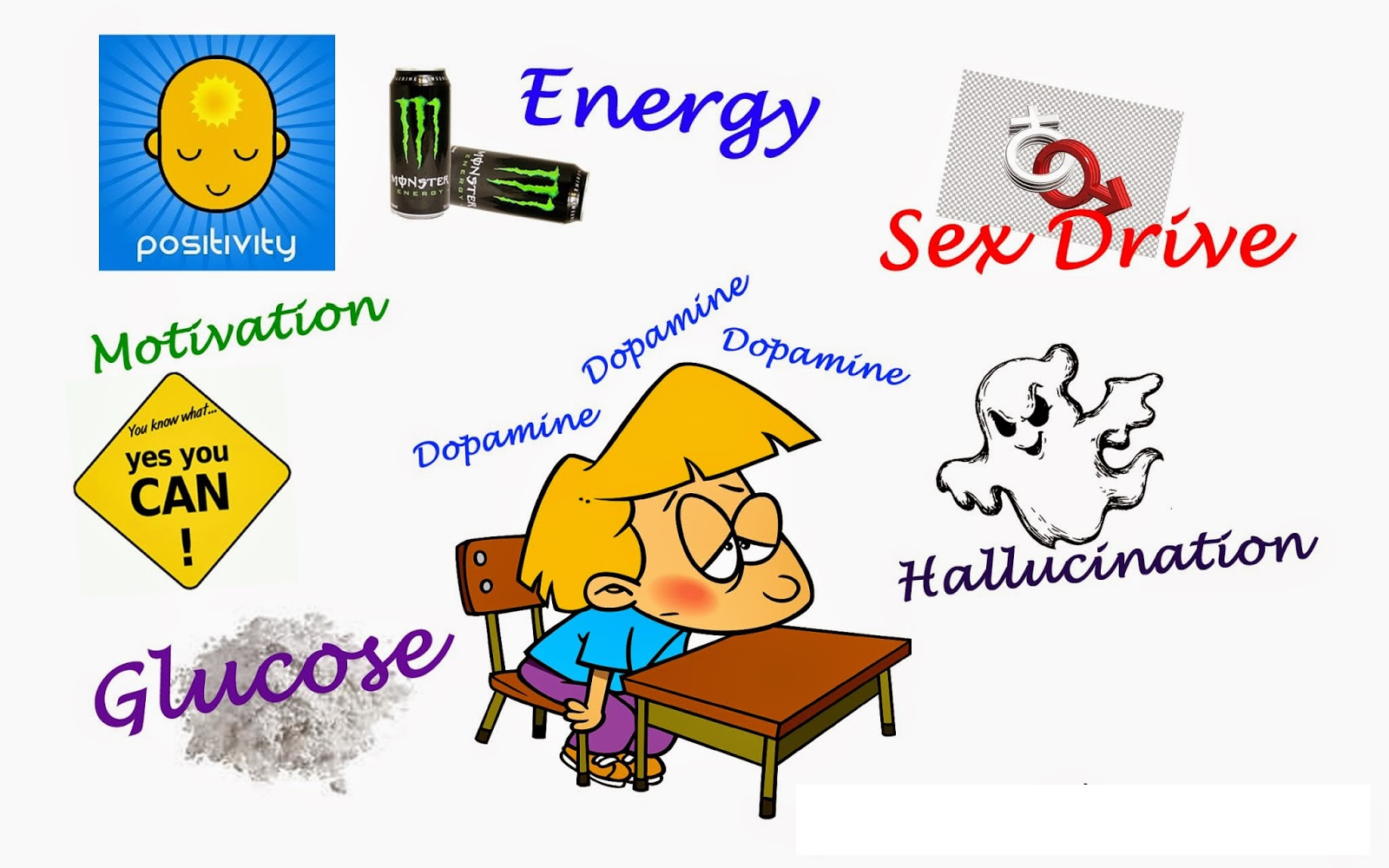In a Nutshell : Horsepower is a term that describes how much work an engine or other source does over a specific period of time.
 To be Precise
To be Precise
- The Imperial Horsepower is defined as …
- The Metric Horsepower is defined as …
 Origins
Origins
We can give Scottish inventor, mechanical engineer, and chemist James Watt the credit for naming the horsepower.
In the late 1700s steam engines were beginning to replace horses which meant a means to compare the output of horses with that of engines that could potentially replace them was needed. There had to be a way to rate the power of steam engines.

We can give Scottish inventor, mechanical engineer, and chemist James Watt the credit for naming the horsepower
It was Watt who calculated the work an average horse could do. He figured a horse could raise 330 lbs up 100 ft in 1 minute. That is equivalent to 550 lbs per second or 33,000 lbs per minute.
The power of modern engines is measured by hooking up the engine to a machine called a dynamometer. The dynamometer applies a load to the engine and converts its torque (turning effect) to horsepower.
We also measure modern car and lorry engines in terms of engine displacement, usually in litres. Engine displacement is the total volume inside all the cylinders of an engine. However it’s difficult to make an exact conversion from litres to horsepower, because there can be so many variables, such as number of cylinders, bore diameter, stroke length, and revolutions per minute (rpm) of the engine.
We still use the horsepower rating for many of our smaller engines, such as lawn mowers, snowblowers, leaf blowers, and chainsaws, so people are still generally familiar with the unit.
 How Powerful are Humans then ?
How Powerful are Humans then ?
Humans can generate the equivalent of about 1 horsepower for a short period of time. Unlike an engine, our muscles tire, so we are limited in the amount of time we can expend power.
A good athlete can develop a third of a horsepower for an extended period of time, say, at least a half an hour.

